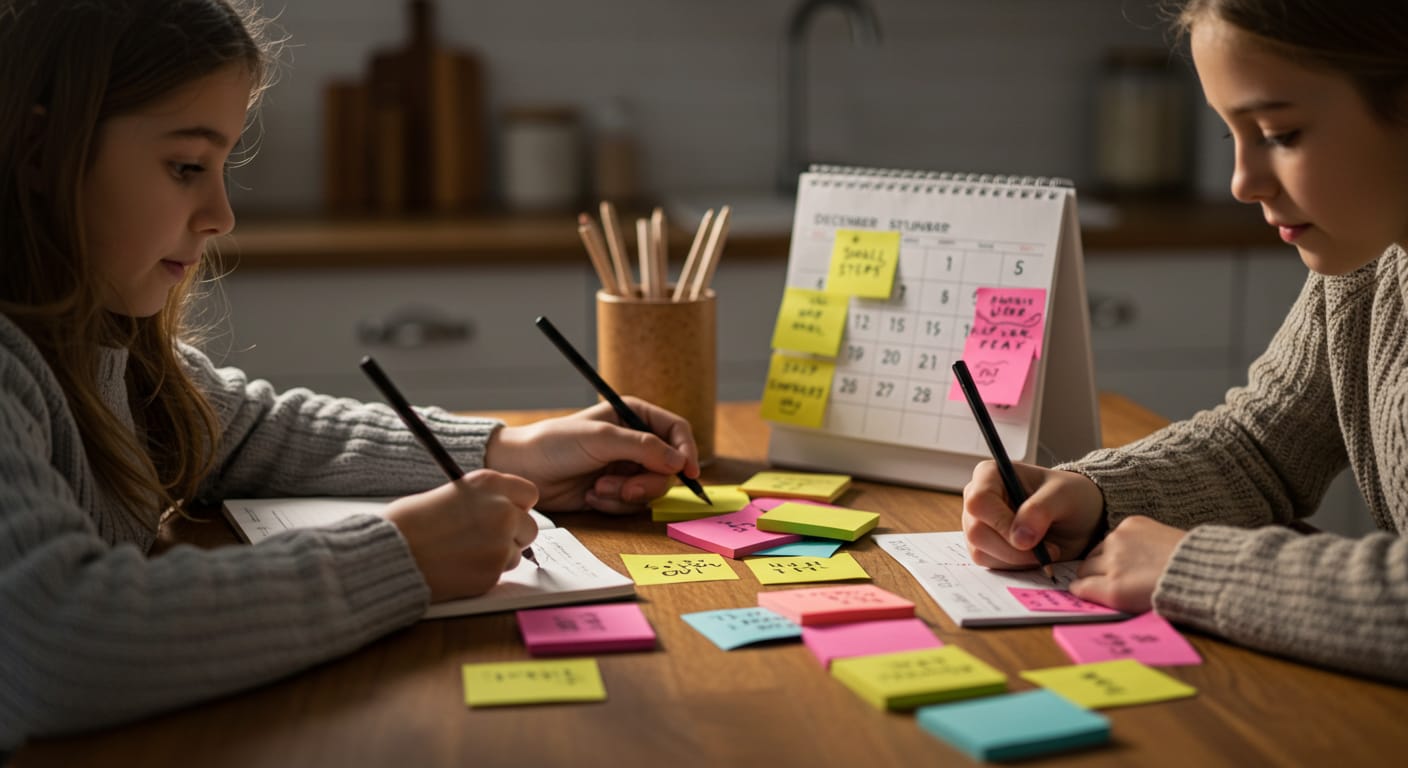Your Actions, Your Habits
New Year habits—we all know how difficult they can be to maintain. But here’s the good news: understanding that habits are hard to break is actually the secret to making your resolutions stick.
“Rather than love, than money, than fame, give me truth.”
— Henry David Thoreau, Walden
The Tradition of Resolutions
It’s no secret that New Year’s resolutions have a rough reputation. Whether it’s losing weight, quitting a habit like nail-biting, or adopting a healthier lifestyle, many people start with enthusiasm only to lose momentum by March. When this happens, it often leads to frustration, guilt, and self-doubt.
Helping Your Child with Resolutions
If your child is setting a New Year’s resolution, be part of the conversation. Encourage optimism, but help manage their expectations. Unrealistic goals can set children up for failure. Instead, support them by helping develop a step-by-step plan. Let them know they can succeed, especially when they take consistent, manageable actions.
Look Back to Move Forward
When creating resolutions, reflection is just as important as planning. Ask your child what motivated their goal. Was it an embarrassing moment? A recent success? Understanding what led to the desire for change can help them process unresolved emotions that might otherwise derail their efforts. Past experiences can influence the way failure feels—sometimes calling up painful memories. Recognizing this can help you support your child more effectively.
Small Steps Over Big Changes
Consider a child who wants to lose weight. While their motivation is admirable, extreme changes like cutting out all fried foods or sweets are often unsustainable. Instead, help them take a gradual approach: reduce unhealthy foods over time and introduce exercise in small, increasing increments.
Are you noticing the pattern? Big, sudden changes are difficult to maintain. The more dramatic the shift, the more likely it is to fail. That’s why the old saying holds true: “Slow and steady wins the race.”
Redefining Failure
As a parent, one of the most valuable lessons you can teach your child is this: Failure is part of life. When a resolution doesn’t go as planned, it doesn’t mean they’ve failed as a person. It just means they’re human.
Encourage them to reflect instead of retreat. Ask:
-
What went wrong?
-
What can we learn from this?
-
How can we do better next time?
This kind of mindset builds resilience and prevents setbacks from turning into shame.
Don’t Forget About Yourself
Supporting your child is important, but don’t forget to care for yourself. If your child is struggling with depression or stress, remember—it’s not your fault. Your own mental and emotional well-being matters, too.
Make a resolution for yourself this year: Take five to ten minutes each day just for you. Read, stretch, meditate, take a walk—anything that helps you recharge. This isn’t selfish. It’s necessary.
Conclusion: Resolutions That Last
This year, build habits that are kind to yourself and your family. Focus on progress, not perfection. With patience, reflection, and realistic goals, the New Year can bring meaningful, lasting change—for you and your child.


